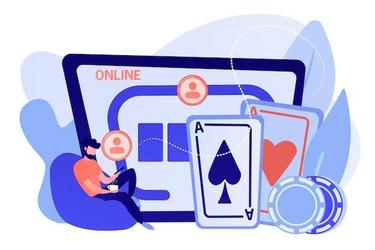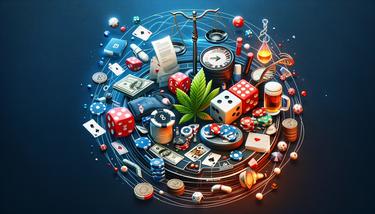What risks are associated with gambling?
Gambling, while a source of entertainment for many, carries inherent risks including the potential for addiction, financial losses, and the exploitation of vulnerable individuals. Beyond individual risks, the industry faces challenges related to fraud, money laundering[1], and cyberattacks, highlighting the need for stringent regulatory measures and responsible gambling[2] practices.
Key Facts
- Potential for addiction and significant financial losses.
- Risk of exploitation of vulnerable individuals.
- Industry challenges include fraud, money laundering, and cyberattacks.
Gambling, a form of entertainment enjoyed by millions worldwide, involves risking money or valuables on an event with an uncertain outcome in the hope of winning more. While it can provide temporary excitement and the possibility of monetary gain, gambling is fraught with risks that can have serious implications for individuals and their families. Understanding these risks is crucial for anyone involved in gambling, whether occasionally or regularly.
Financial Risks
The most immediate and apparent risk associated with gambling is financial loss. The odds are typically in favor of the house (or the organizer of the gamble), meaning that over time, most gamblers will lose more money than they win. This can lead to significant financial strain, including debt, loss of savings, and bankruptcy. The pursuit of recovering lost money can create a vicious cycle of continuous gambling and increasing debt.
Addiction and Mental Health Issues
Gambling can be highly addictive. The thrill of the gamble and the allure of a big win can lead to compulsive gambling behavior, where the individual feels an uncontrollable urge to gamble despite negative consequences. This can result in gambling disorder, a recognized psychological condition. Associated mental health issues include depression, anxiety, and suicidal thoughts, as the stress and despair from gambling losses mount.
Relationship and Social Problems
Gambling can strain relationships with family, friends, and colleagues. Lies about gambling activities and losses can erode trust, while financial strain can cause significant stress within families. In severe cases, it can lead to divorce or separation and loss of friendships. Moreover, the gambler’s preoccupation with gambling can lead to neglect of social and family responsibilities and obligations.
Legal and Professional Consequences
In some cases, the financial desperation brought on by gambling losses can lead individuals to engage in illegal activities, such as theft, fraud, or embezzlement, to fund their gambling or pay off debts. This can result in legal issues, including criminal charges, fines, and imprisonment. Additionally, poor performance or absenteeism at work due to gambling activities can lead to job loss and long-term career damage.
Health Risks
The stress of gambling and its consequences can also have direct effects on physical health. Chronic stress can lead to problems like high blood pressure, heart disease, and other stress-related illnesses. Additionally, the lifestyle of a serious gambler, which may include poor diet, lack of exercise, and erratic sleep patterns, can further exacerbate health problems.
Impact on Society
The effects of gambling can extend beyond the individual to have broader societal impacts. Problem gambling can contribute to economic costs, including increased use of social services and healthcare, as well as lost productivity. It can also lead to increased crime and strain on the legal system.
In conclusion, while gambling is a source of entertainment for many, the risks associated with it cannot be overlooked. These risks encompass a wide range of potential negative outcomes, from financial ruin and addiction to relationship breakdowns and health issues. Recognizing and addressing these risks is essential for anyone who chooses to gamble, as well as for society at large, to mitigate the potential harms associated with gambling activities.
- Money Laundering — The process of making large amounts of money generated by a criminal activity appear to be legally obtained.
- Responsible Gambling — Initiatives and practices aimed at promoting safe and controlled gambling, preventing gambling addiction, and protecting vulnerable players.
- National Council on Problem Gambling. 'Understanding the Risks.'
- International Association of Gaming Regulators. 'Responsible Gambling.'


